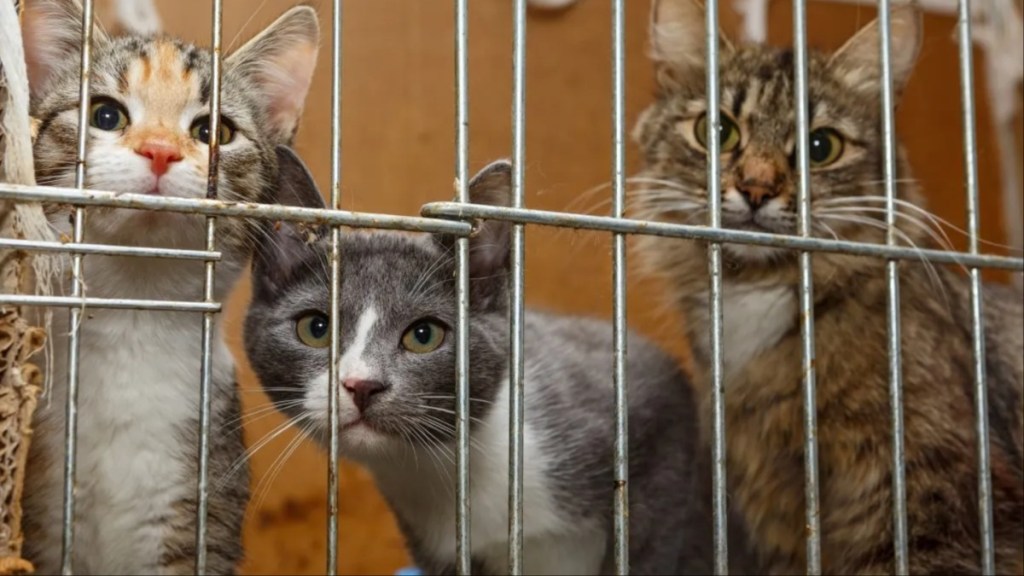Conservative MP Sir Christopher Chope is pushing to pause the extension of new legal protections against the abduction of cats in England and Northern Ireland. It is a controversial move that has drawn attention to the proposed Pet Abduction Bill in the United Kingdom. The proposed legislation aims to address the growing concern around pet theft by making it a specific criminal offense. However, Chope’s amendments could change its scope significantly.
Sir Christopher Chope moves to make changes to cat protections in Pet Abduction Bill
Sir Christopher Chope’s stance on the matter stems from a forthcoming law regarding the compulsory microchipping of cats, set to take effect in June in England. He advocates delaying the inclusion of cats in the Pet Abduction Bill until the implementation of this microchipping regulation.
Microchips are tiny electronic devices embedded under an animal’s skin. They serve as a modern means of linking pets to their owners through unique identification numbers. Microchipping has been mandatory for dogs in England, Scotland, and Wales since 2016 and in Northern Ireland — where dog owners must register their pets annually. However, no such mandate exists for cats in the majority of the U.K.
By advocating for a connection between the ability to prosecute under the new offense and the success of microchipping, Chope suggests that cat abduction could be considered for inclusion at a later stage, once the microchipping system’s efficacy is proven — per BBC. This perspective mirrors his interpretation of the initial recommendations made by a task force established during the lockdown, which, according to him, suggested limiting the scope of the pet abduction offense primarily to dogs.
Having cleared its first hurdle in the House of Commons earlier in the year, the Pet Abduction Bill’s journey is not without its procedural obstacles. Sir Christopher Chope’s well-documented history of using parliamentary mechanisms to delay or block legislation has raised concerns among supporters about the bill’s future. While Chope maintains that his interventions aim to uphold parliamentary standards rather than oppose the content of the legislation itself, his actions highlight the complexities and challenges of navigating legislative reform in the U.K. parliament.
What you need to know about the Pet Abduction Bill, Parliamentary procedure, and the 1968 Theft Act
The Pet Abduction Bill, spearheaded by Conservative MP Anna Firth, emerged as a pivotal piece of legislation in response to rising concerns over pet thefts. Introducing new criminal offenses for the abduction of both dogs and cats, the bill prescribes penalties including fines and up to five years of imprisonment for convicts. The government had previously examined dog theft within the context of the Kept Animals Bill, spurred by task force recommendations that recognized the escalating issue, evidenced by reported cases of dog thefts rising to 2,760 in 2021 from 2,000 in 2020.
Currently, under the 1968 Theft Act, the law considers pets as property, making pet theft a matter of property theft. The Pet Abduction Bill seeks to refine this view by distinguishing the theft of pets as a specific offense, recognizing the unique emotional and social value pets hold for their owners.
Firth’s proposal, which has garnered government support and acclaim from animal welfare organizations, looks set to progress through the legislative process. Nonetheless, amendments tabled by the Christchurch MP have introduced a procedural step that mandates a parliamentary debate, now scheduled for April 19.
As the Pet Abduction Bill navigates the complexities of parliamentary procedure, its supporters remain hopeful for a smooth journey to the House of Lords for further consideration. The unfolding debate and subsequent decisions will ultimately determine how the U.K. strengthens its laws to protect pets from the rising threat of abduction.








